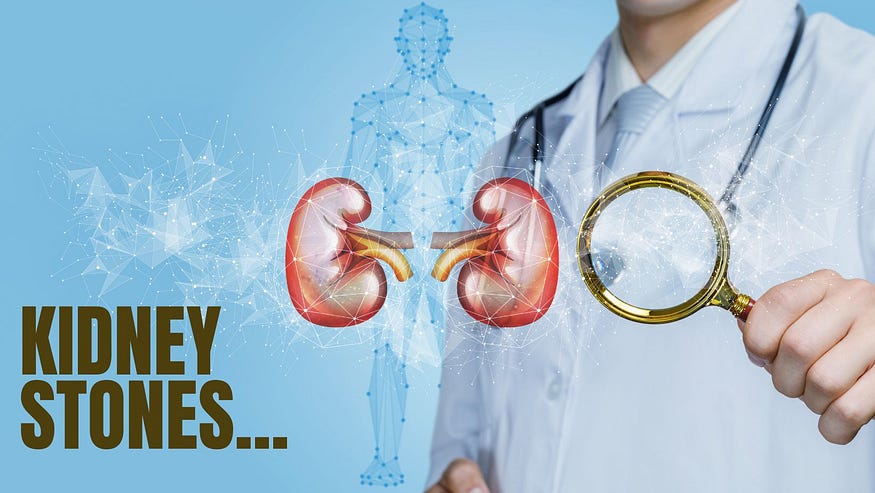Understanding Kidney Stones: Dietary Guidelines for Prevention and Management

What are Kidney Stones?
Kidney stones are hard deposits that form inside your kidneys. These stones are made of mineral and acid salts that crystallize and clump together in concentrated urine. While they can be quite small, some stones can grow as large as a golf ball. Passing a kidney stone can be incredibly painful, causing cramping and sharp pains in your lower abdomen and back.
How Do Kidney Stones Form?
Urine typically contains dissolved minerals and salts. However, sometimes, the concentration of these substances becomes too high, or the urine becomes too acidic. This can cause the minerals to come out of solution and crystallize, forming a stone.
There are several factors that can contribute to kidney stone formation:
- Dehydration: When you don’t drink enough fluids, your urine becomes more concentrated, increasing the risk of stone formation.
- Diet: A diet high in animal protein, salt, oxalate, and sugar can contribute to kidney stones.
- Medical conditions: Certain medical conditions, such as recurrent urinary tract infections (UTIs), inflammatory bowel disease (IBD), and hyperparathyroidism, can increase the risk of kidney stones.
- Family history: If you have a family history of kidney stones, you are more likely to develop them yourself.
There are four main types of kidney stones:
- Calcium oxalate stones: These are the most common type of kidney stone, accounting for about 75% of all cases. They form when calcium combines with oxalate, a substance found in many foods and even produced by your liver.
- Uric acid stones: These stones form when urine becomes too acidic. This can be caused by a diet high in animal protein, gout, or certain medications.
- Struvite stones: These stones are less common and form due to infections in the urinary tract.
- Cystine stones: These are the rarest type of kidney stone and are caused by a genetic disorder that causes the body to excrete too much cystine, an amino acid.
The most common symptom of a kidney stone is severe pain in your lower abdomen and back. This pain may come and go in waves and can be excruciating. Other symptoms of kidney stones can include:
- Painful urination (burning sensation)
- Blood in your urine
- Nausea and vomiting
- Frequent urination
- Difficulty urinating
If you experience any of these symptoms, it is important to see a urology specialist, a doctor who specializes in the urinary tract, for diagnosis and treatment. Early diagnosis and treatment can help prevent complications, such as infection and kidney damage.
Your doctor will likely ask you about your medical history and symptoms. They may also perform a physical exam and order tests, such as:
- Urinalysis: This test checks for blood, infection, and the presence of stone fragments in your urine.
- Blood tests: These tests can check for your kidney function and identify any underlying medical conditions that may be contributing to your kidney stones.
- Imaging tests: X-rays, CT scans, and ultrasounds can help visualize the size, location, and type of kidney stone.
Treatment of Kidney Stones
The treatment for kidney stones will depend on the size, location, and type of stone.
- Small stones: Small stones (less than 4 mm) may pass on their own with increased fluid intake and pain medication.
- Larger stones: Larger stones may require medical intervention, such as:
- Lithotripsy: This procedure uses shock waves to break the stone into smaller pieces that can then pass through your urine.
- Ureteroscopy: This procedure involves inserting a thin, lighted scope through your urethra and bladder to reach the stone. The doctor can then use lasers or other instruments to break up the stone or remove it altogether.
- Percutaneous nephrolithotomy: This is a surgical procedure used to remove large or complex stones.
Dietary Guidelines for Preventing Kidney Stones
While there is no guaranteed way to prevent kidney stones, certain dietary changes can help reduce your risk. Here are some tips:
- Drink plenty of fluids: Aim for eight glasses of water or other fluids per day. This will help dilute your urine and prevent stones from forming.
- Limit animal protein: A diet high in animal protein can increase your risk of uric acid stones. Aim to limit red meat, poultry, and fish.
- Reduce salt intake: A high-salt diet can increase your risk of calcium oxalate stones. Aim to limit your daily sodium intake to less than 2,300 milligrams.
Comments
Post a Comment